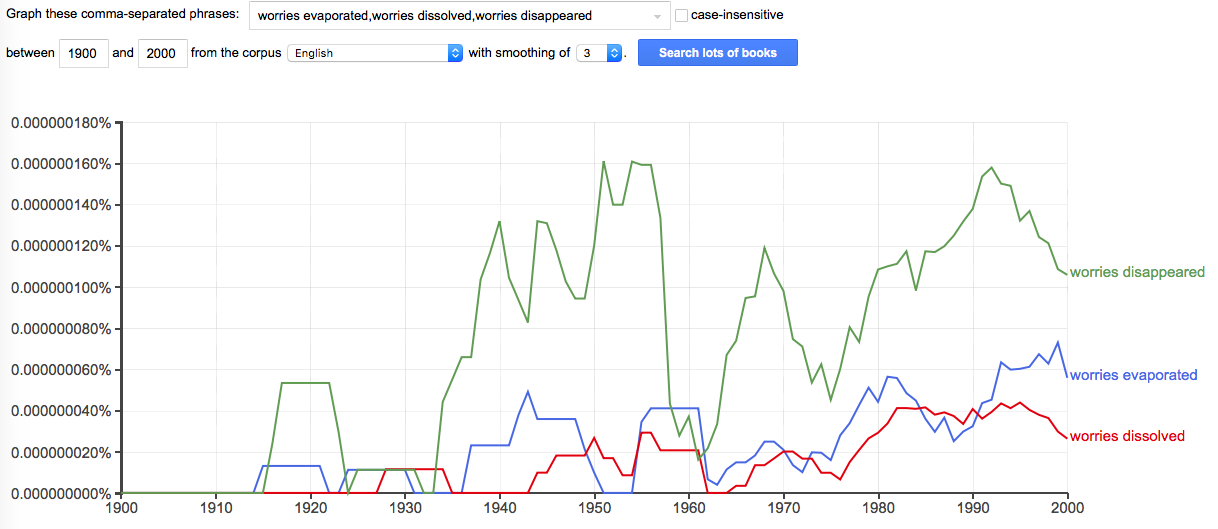My worries turned to none.
My worries turned to nonenothing.
A fluent speaker would be most unlikely to use either of these sentences, and this is supported by a search using Google Ngrams which returns no result for any construction of the form [worry/worries] [turn+inflection] to [none/nothing].
I suspect this is because we instinctively think of "turn to" as requiring a thing that the subject becomes, and the null outcome "nothing" or "none" seems less suitable in this kind of expression. We would also tend to use "turn into" when we mean "become", since "turn to" can mean changing one's orientation towards something (not counting idiomatic expressions like turn to stone or feet turned to clay).
Instead, we would be likely to use a metaphor that captures the sense of something "turning into nothing", such as:
My worries evaporated.
My worries dissolved.
My worries disappeared.
Google Ngrams gives many examples of these three verbs in the format worries [past-tense], with "worries disappeared" having the highest frequency in the corpus:

